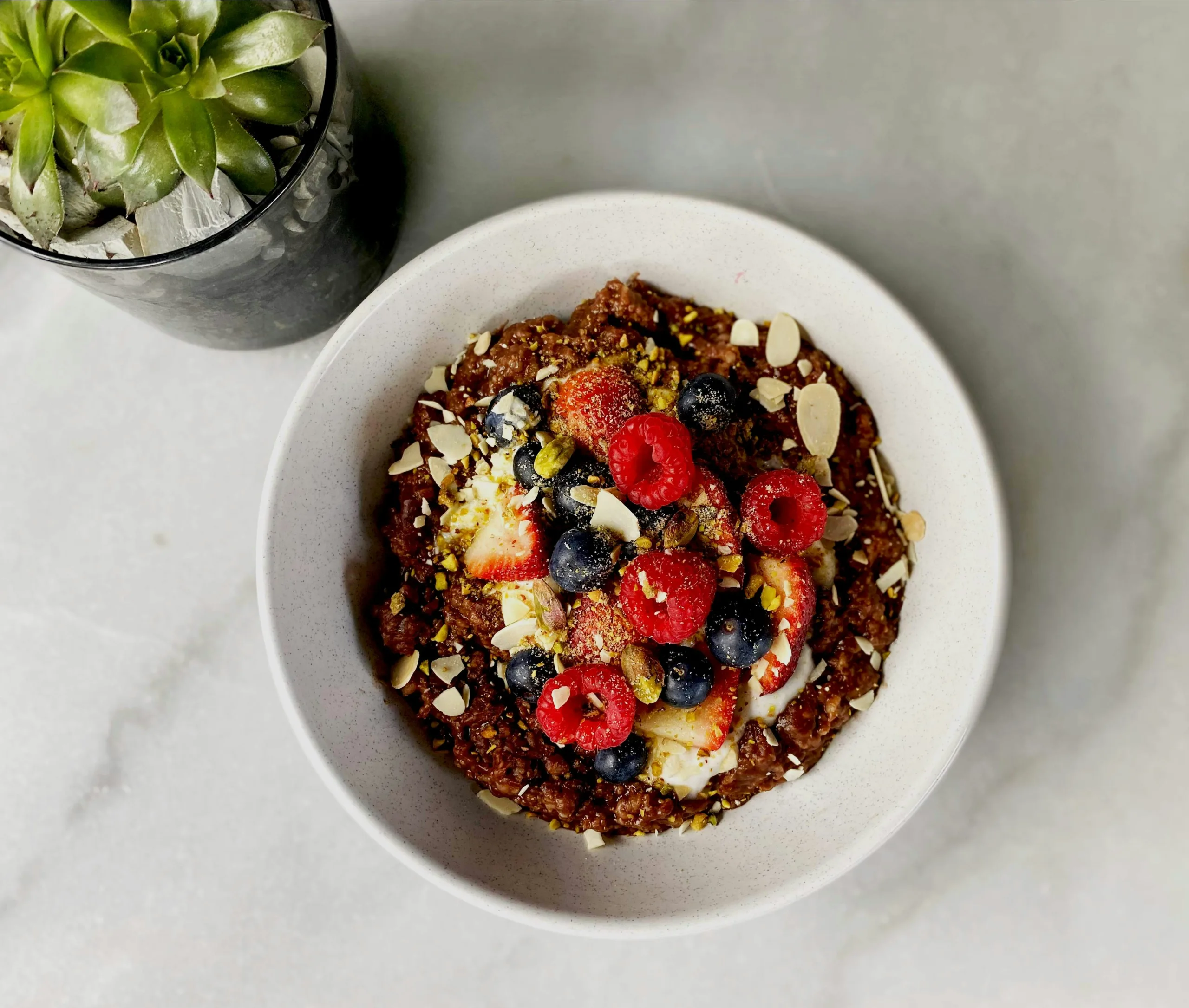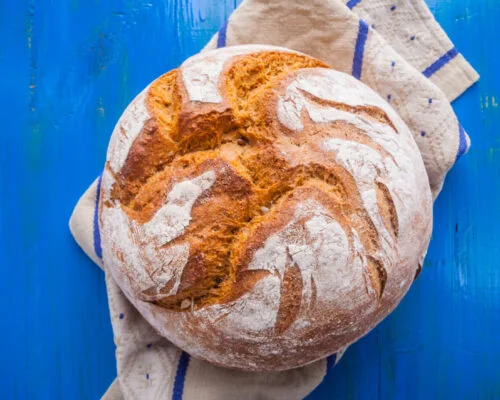If you’re plugged into the wellness world, there’s a good chance you’ve heard of moringa. This South Asian superfood has been pinned as a panacea and used to make products like powders, extracts and teas.
Purported benefits of the moringa plant include its antioxidant, anti-inflammatory and anti-cancer properties, among others. Seriously, some Ayurvedic practitioners believe moringa has the power to treat upwards of 300 different ailments (think: high blood pressure, depression, and even cancer).
But clinical studies on moringa, also known as the horseradish plant or the drumstick tree, are lacking. To help you sort through the noise, we’re breaking down the basics of moringa tea in particular.
RELATED: What is Moringa, and Is It Really Good For Me?
Read on for the nutritional value of moringa tea, health benefits of moringa, plus how to brew moringa tea at home.
Nutrients in Moringa Tea
Moringa tea is made from dried moringa tree leaves, which naturally serve up a slightly spicy flavor. Each part of the moringa plant delivers different health benefits. For example, moringa leaves are rich in key nutrients like protein, vitamins A, B and C, calcium, potassium and iron. Though not used in moringa tea, the plant’s seeds also contain more protein, plus anti-inflammatory omega-3 fatty acids. Also cool: the moringa plant is a great source of potent antioxidants like quercetin.
RELATED: How to Incorporate Omega-3s Into Every Meal
Health Benefits of Moringa Tea
There are countless purported health benefits of moringa in general. Experts say the research best supports those listed below, but it’s important to note that these studies utilized moringa in the form of a powder or extract, not a tea. Additionally, though the studies mentioned below found correlations between moringa and the highlighted health outcomes, not all of the findings were statistically significant.
It May Lower Blood Sugar Levels
Research supports the idea that the moringa plant could potentially have anti-diabetic properties. A small study published in the journal Nutrients reported that adding moringa leaf powder to food reduced the blood sugar response to meals of study participants with diabetes. Unfortunately, the powder also significantly reduced the palatability of the food, per the researchers.
It Could Reduce Asthma Severity
A 2008 study from the Indian Journal of Pharmacology found that daily consumption of a moringa powder in water improved symptoms of bronchial asthma, including difficulty breathing, coughing and wheezing.
It Might Have Anti-Cancer Effects
Moringa extract may induce apoptosis. Translation: it may promote the death of toxic cancer cells, per research published in the Asian Pacific Journal of Cancer Prevention.
Will Moringa Help Me Lose Weight?
Early animal studies found that an extract derived from moringa leaf led to a reduction in body weight and fat accumulation in mice. Sure that’s cool, but we need a lot more research—especially in humans—before we can draw any conclusions about the success of moringa for weight loss.
Friendly reminder: there is no magic bullet for weight loss, so moringa tea alone won’t melt pounds. Go ahead and include the herbal ingredient in your diet if you’d like, but focus more on practicing health-promoting behaviors, like eating a diet packed with fruits and veggies, hydrating adequately, and exercising regularly for long-term results.
Risks of Moringa
It’s unlikely that a cup of moringa tea will deliver a high enough dose of the plant to pose health risks. However, more concentrated forms of moringa, like extracts or supplements, could potentially interact with medications used for conditions like hypothyroidism, diabetes, and high blood pressure.
If you take medications for any of these health conditions, talk to your doctor before regularly integrating a cup of moringa tea or a moringa powder.
How to Brew Moringa Tea
To brew moringa tea at home, simply add a moringa tea bag to one cup (or eight ounces) of boiling water and steep for approximately 10 minutes. We love blends that combine earthy moringa with refreshing herbal accents like spearmint for the perfect sip.
(Image: Shutterstock)






























